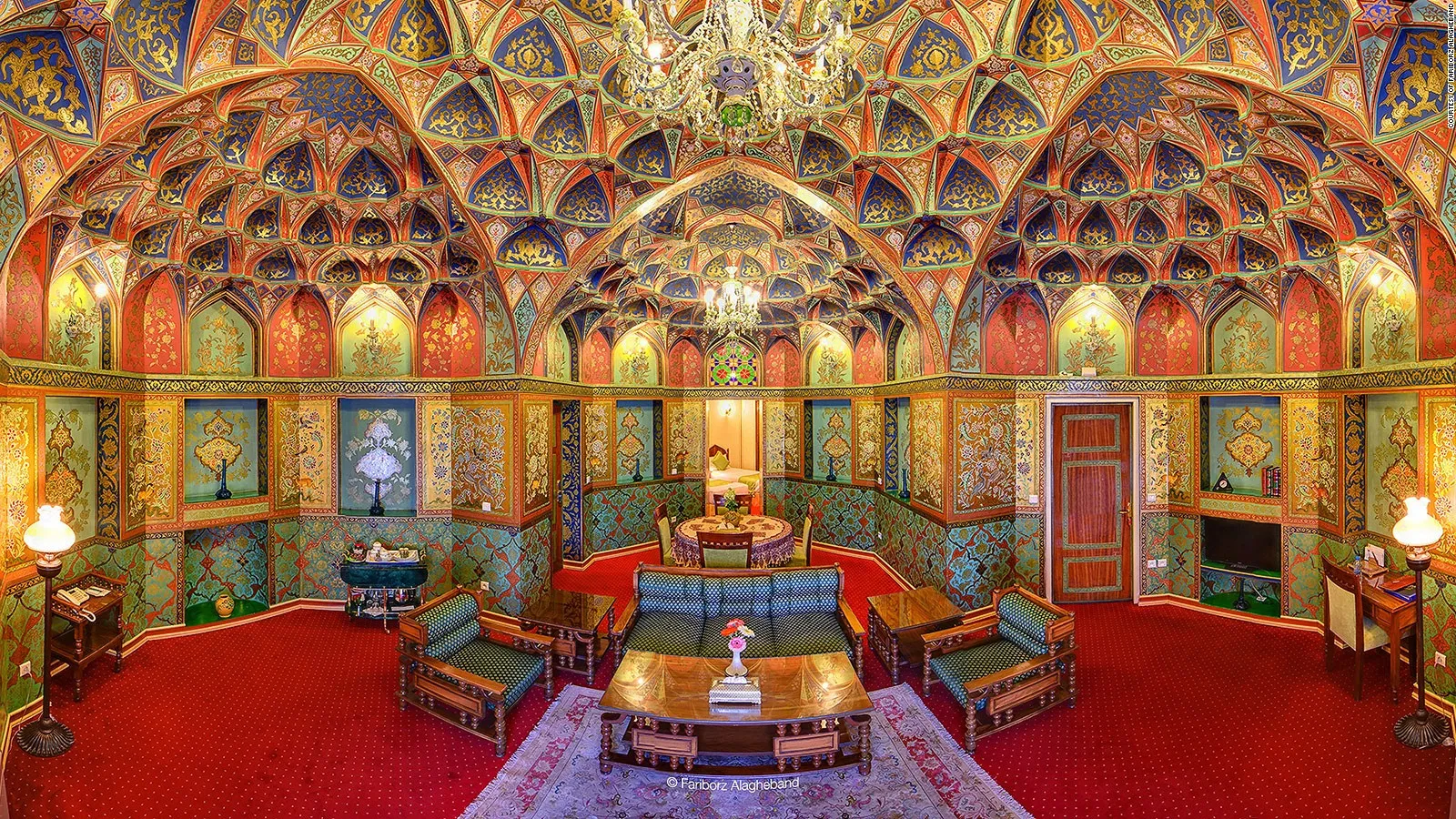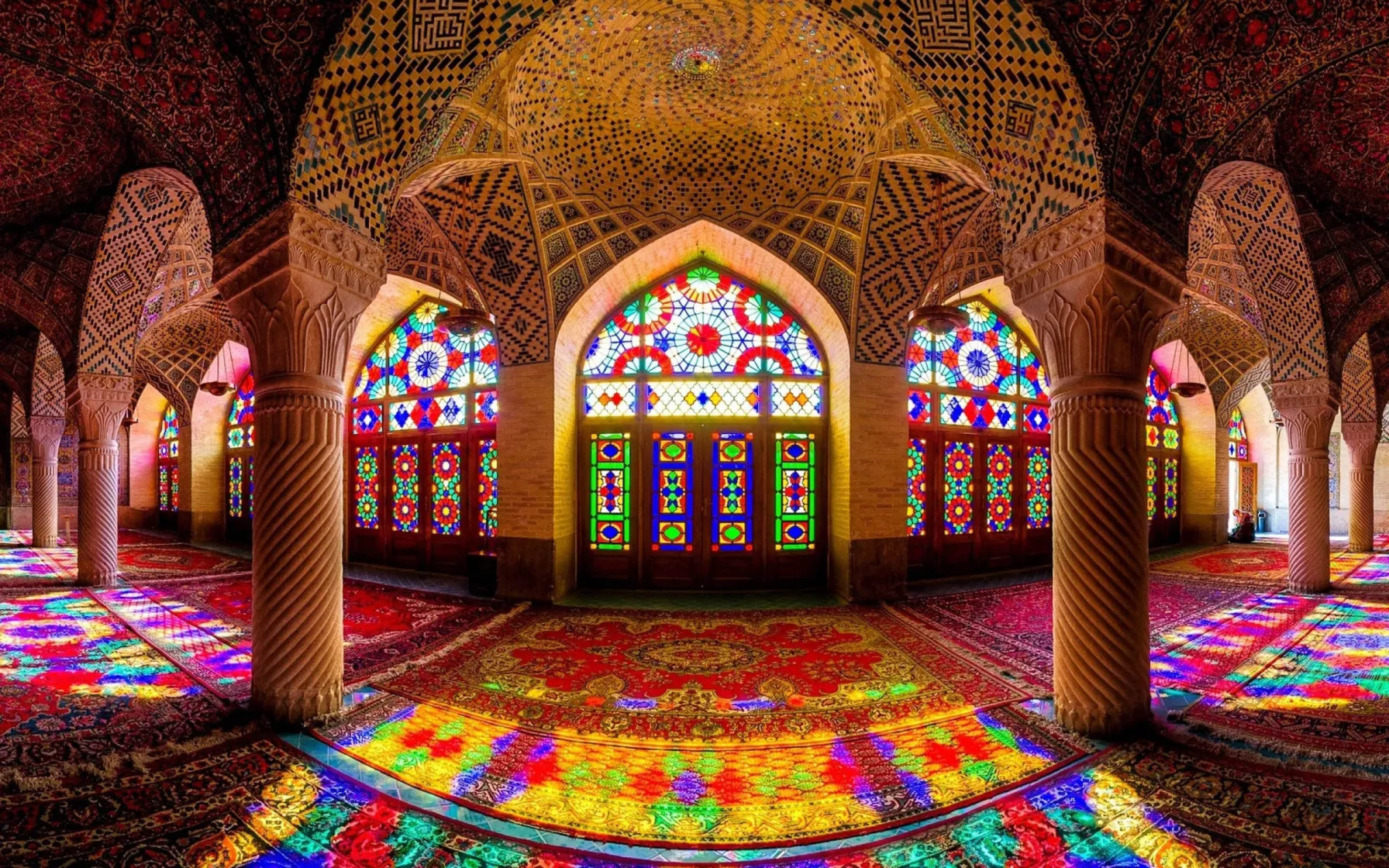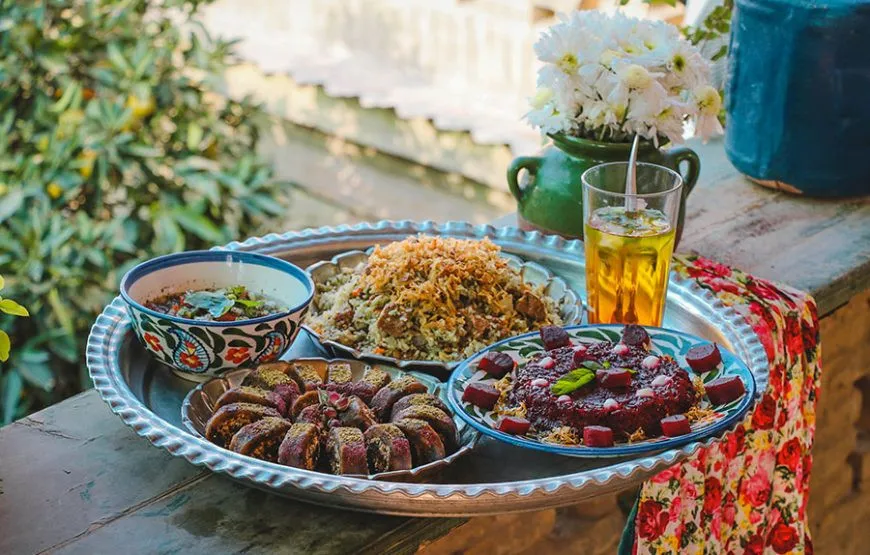Iran is one of the oldest countries in the world. Usually, being a country with centuries of history behind it means having lots of celebrations, ceremonies, and customs being held annually. The celebration of Yalda Night is one of them. Iranians have celebrated the longest night of the year for centuries, and on December 21 of each year, they have waited for the sun to come up again and celebrated the dawn of the first day of winter and welcomed the longer days, the presence of light and warmth for a minute more each day.
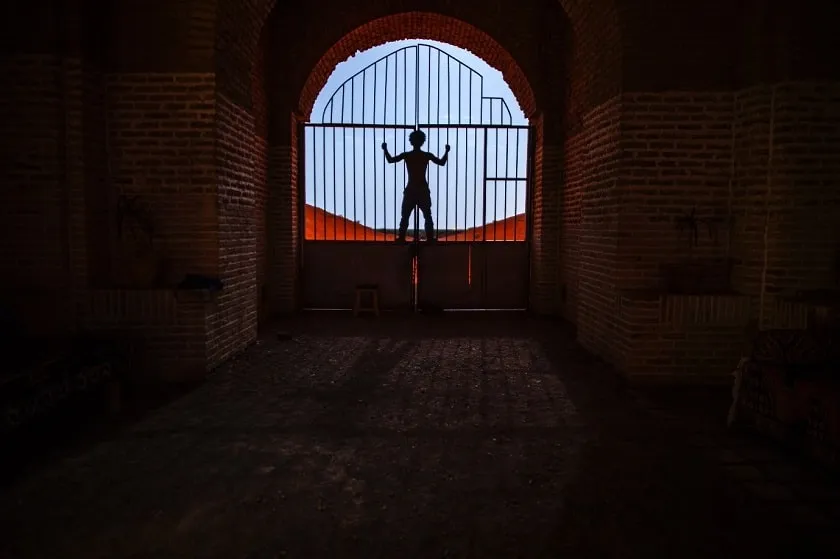
It has always been said that those who manage to maintain a relationship with the child within themselves will be happier in their lives. Experiencing ours may be long forgotten curiosity, and grave interest in learning new things can be still as joyful as it used to be to us when we were ourselves still young. Then why not accompanying an imaginary little boy who is following his heart, to learn more, and to know more about Iran and its old traditions and festivities?
Then please, imagine a child in the wonderland of cultures, see him traveling to Iran, and watch him as he passes through the gates of the traditional Iranian ceremonies. Look forward as he discovers exciting facts and fabulous stories. Accompany him on his journey; while he sits with people who celebrate life. Enjoy his experiences as if they are your own, fall in love, as he does, with every piece of history, tradition, and culture of Iran. Experience that joyful moment of getting together and living life as if it is a gift bestowed on all of us, as most Iranians do.
Origins: where does Yalda come from?
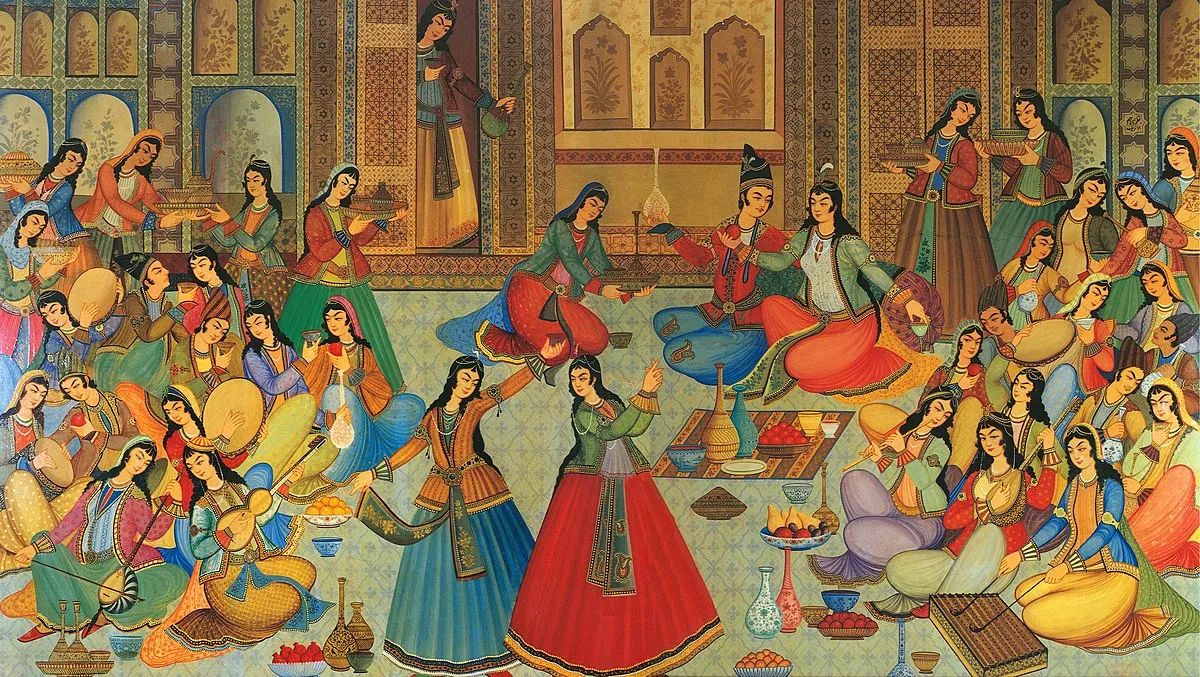
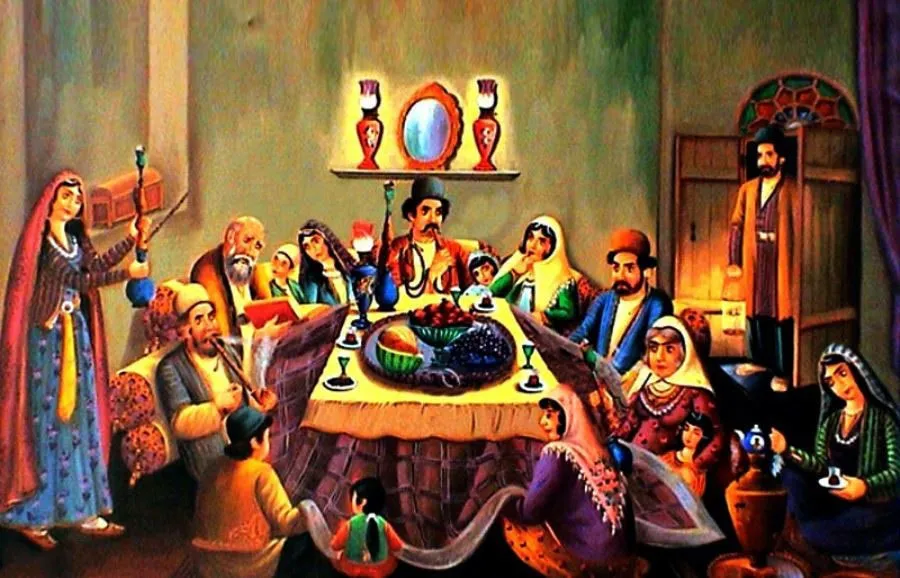
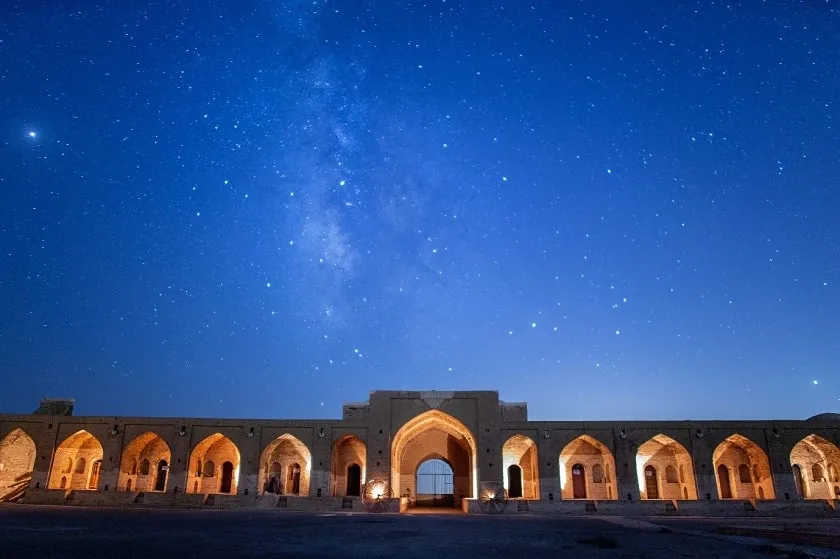
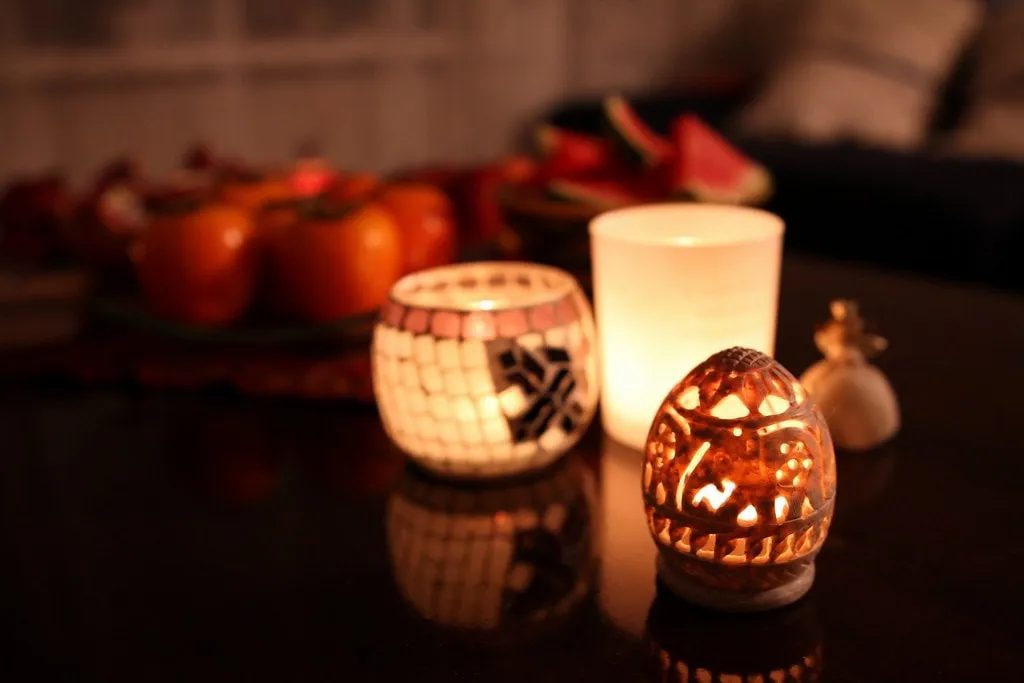
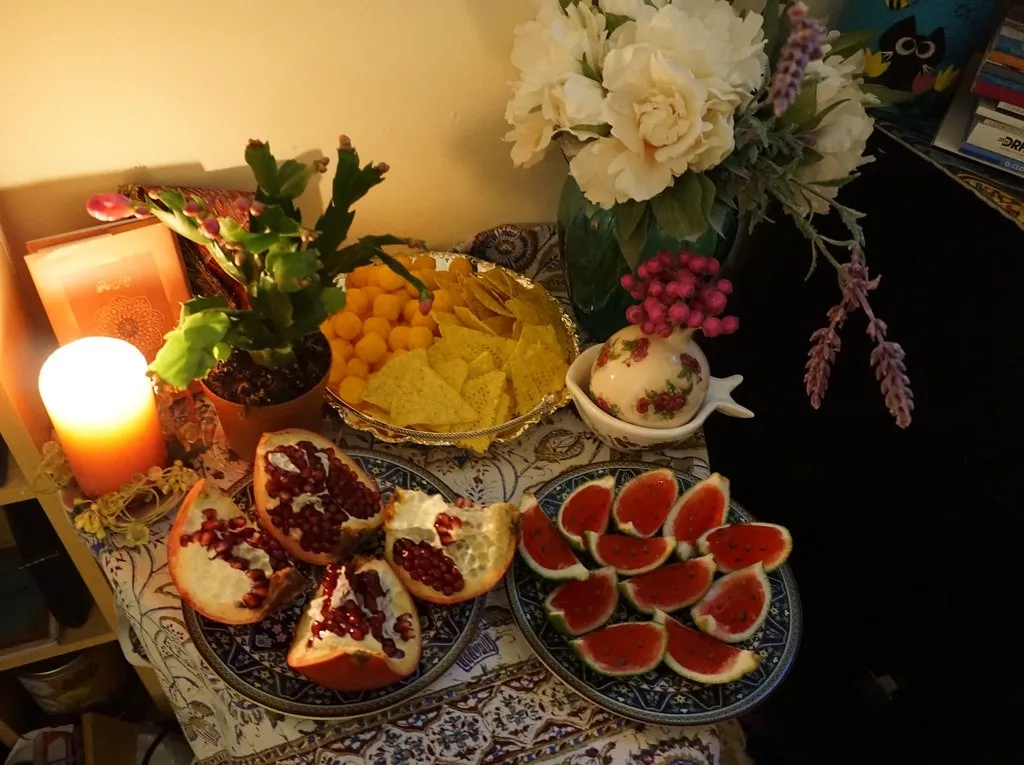
The first question popping into the mind of the little boy may be, what does the name Yalda mean, and where does it come from?
In the first and third centuries, there were some Syriac Christians who fled to Iran seeking shelter from religious persecutions. They brought their language and customs along with themselves. Among these customs and celebrations was the celebration of the birth of their prophet, Jesus Christ, on the 21st day of December and also the name Yalda, which they used to describe this day as it meant to give birth in their language. The common ground between Iranians celebrating the winter solstice and these Christians celebrating the birth of their Prophet made the use of the word Yalda common between Iranians as well to call their celebration as well while welcoming those Christians and their ceremonies and customs.
It is also worth mentioning that the word Yelda in Arabic means dark night, and as Persian and Arabic languages have many words and traditions common between them, this name may also be referring to the whole concept of this traditional Persian celebration.
Do you like to see the adventures that Iran deserts offer before a real experience?
Embark on an imaginary journey through Iran and take a glimpse of the beauty its spectacular nature holds through Iran 360 Virtual natural Tours.
Yalda Night or Shabe Chelleh?
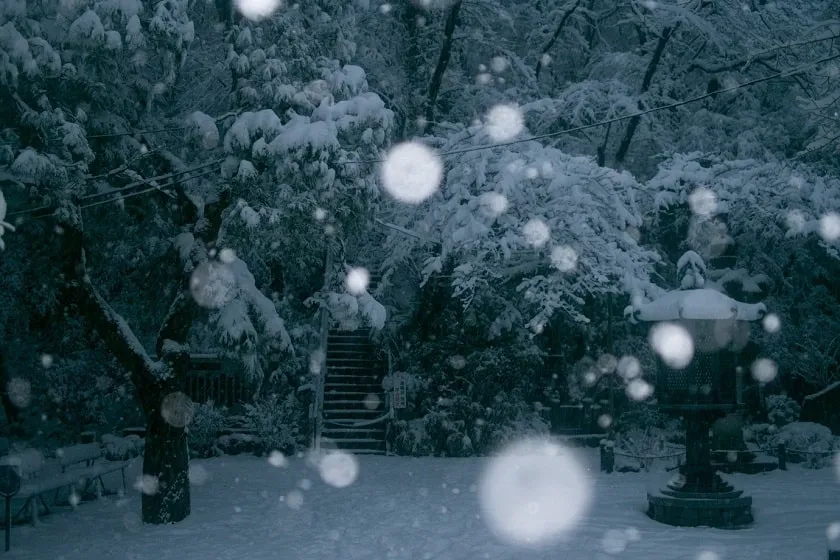
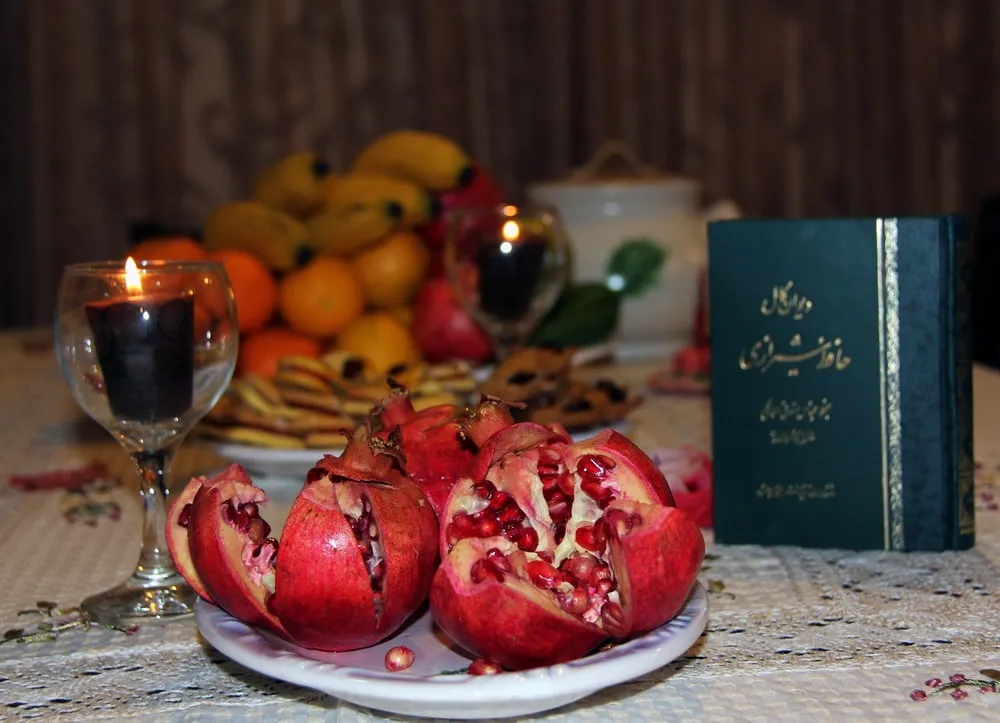
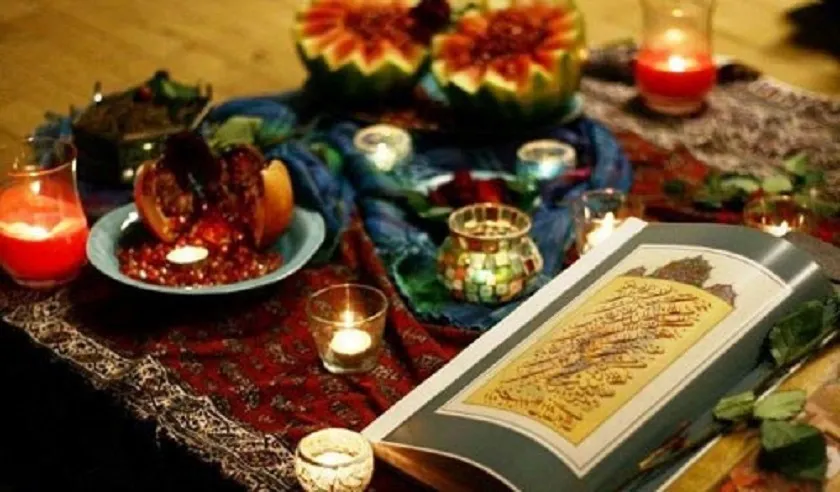
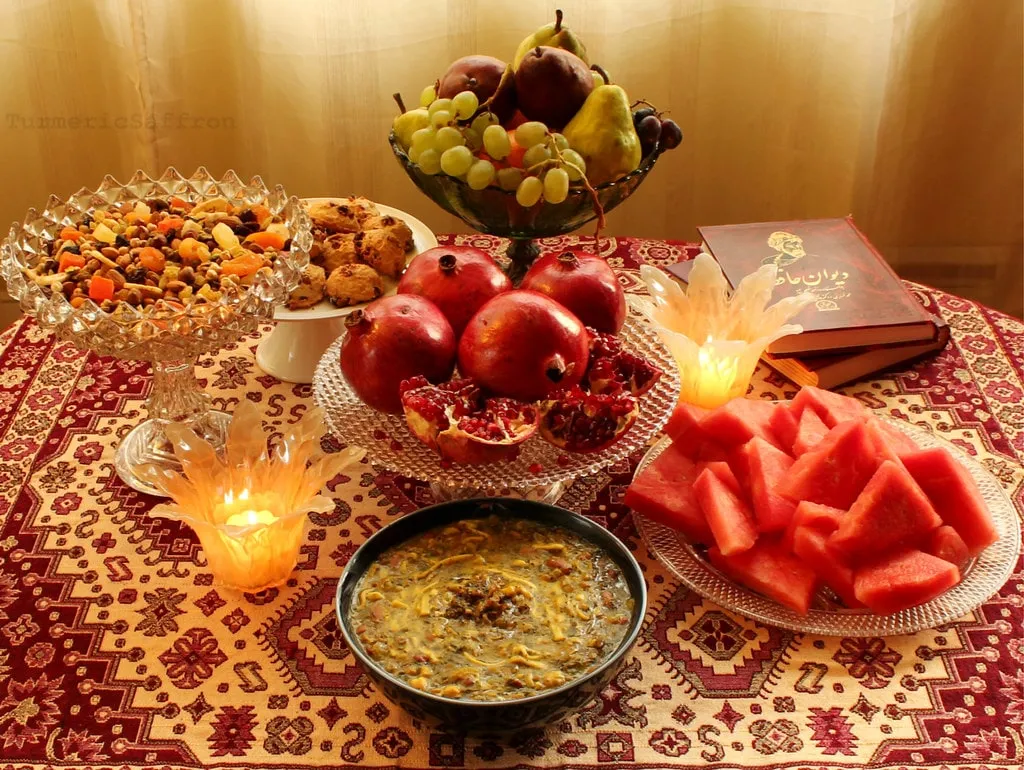
The names Yalda and Chelleh are used interchangeably nowadays to refer to this special night of celebration. But what does Chelleh mean, and what does it stand for? Iranians have divided seasons into forty-day periods, and they all come with the name of different chellehs, meaning forty days. The first chelleh is in summer, but the remaining ones are in winter, and they go by the name of the big and the small Chelleh. The big Chelleh starts from the first day of Dey (the first month of winter in the Persian calendar) and continues for forty days, and is followed by the small Chelleh which starts from the tenth to the thirtieth day of Bahman (the second month of winter in the Persian calendar) containing twenty nights and days which are added and thus create the second forty-day period, the small Chelleh.
Thus, Shabeh Chelleh and Yalda Night are the same, the celebration of the winter solstice by ancient Iranians, which is still celebrated by Iranians and also other countries who used to share this ancient civilization and festivities with Iranians such as Azerbaijan, Afghanistan, Iraqi Kurdistan, Tajikistan, and Turkey.
Why do they celebrate Yalda night?
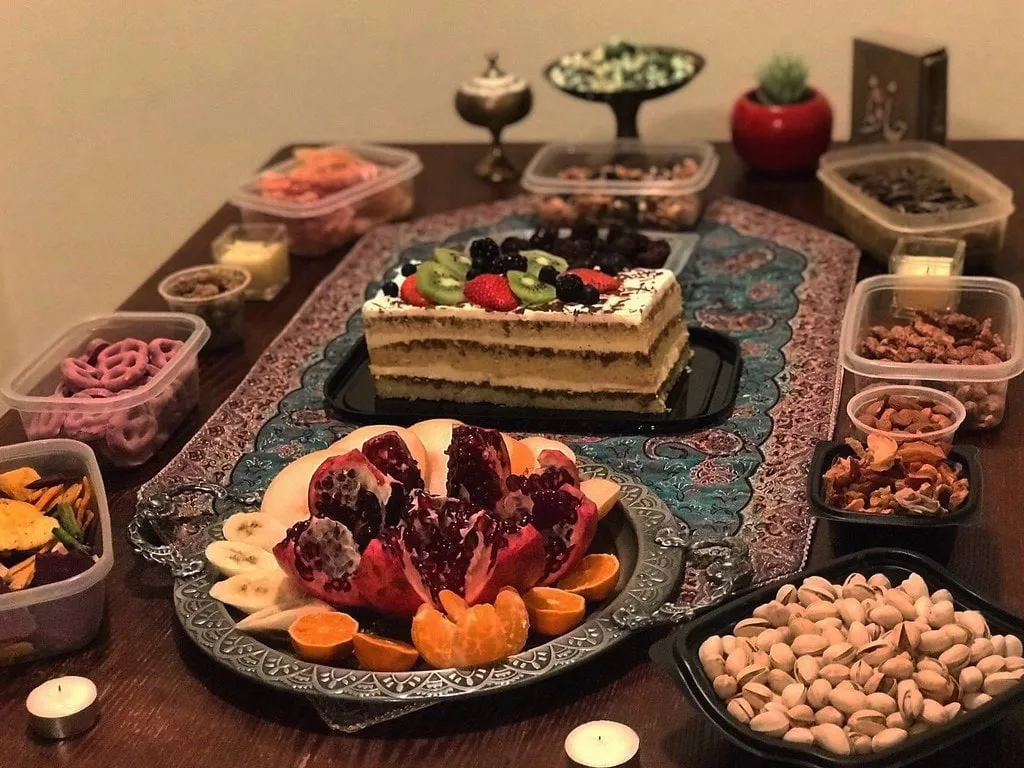
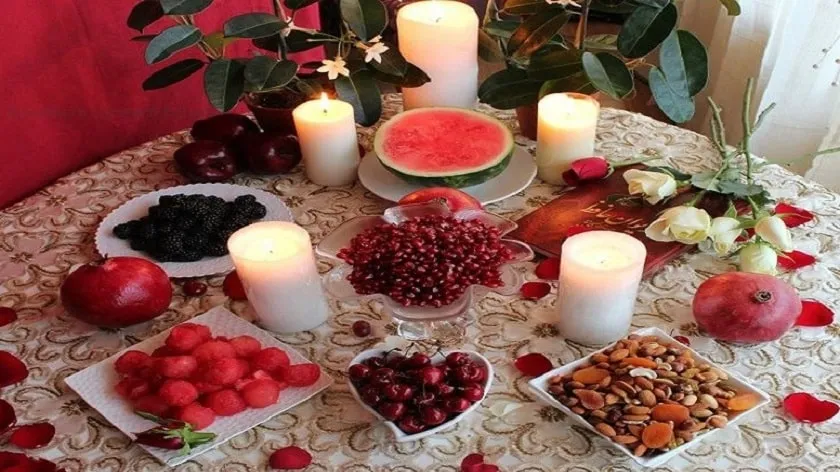
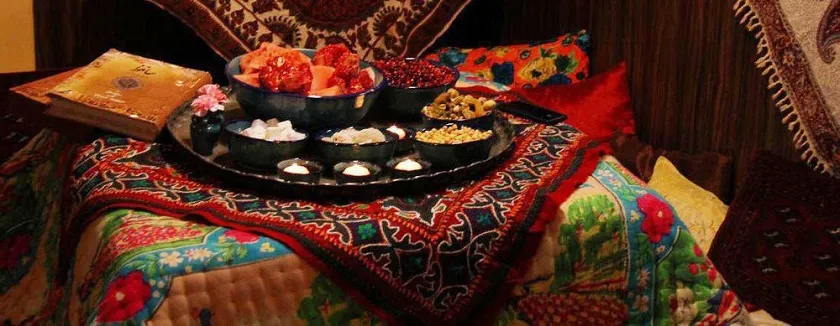
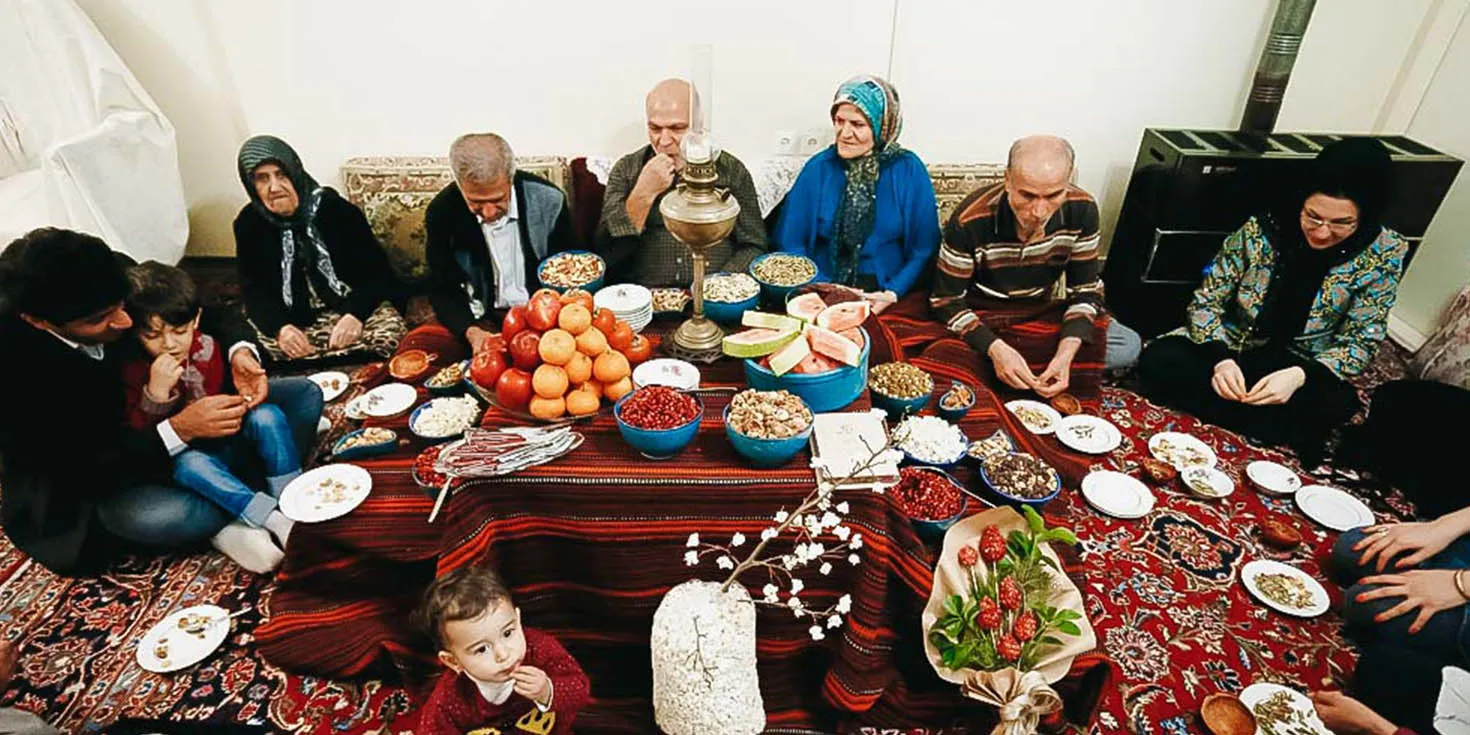
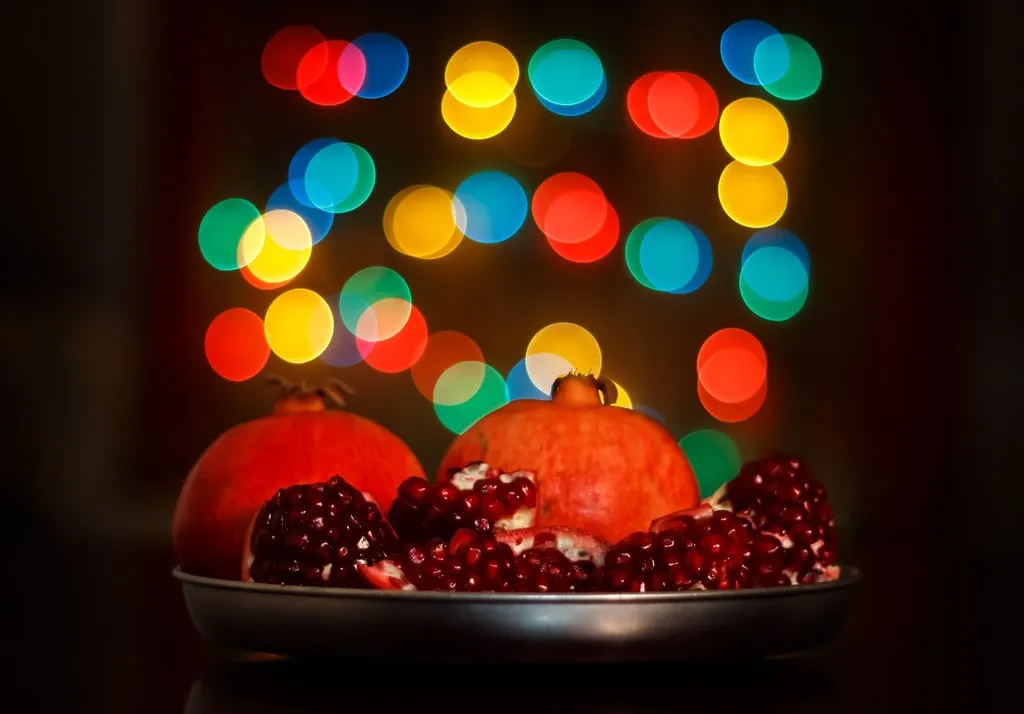
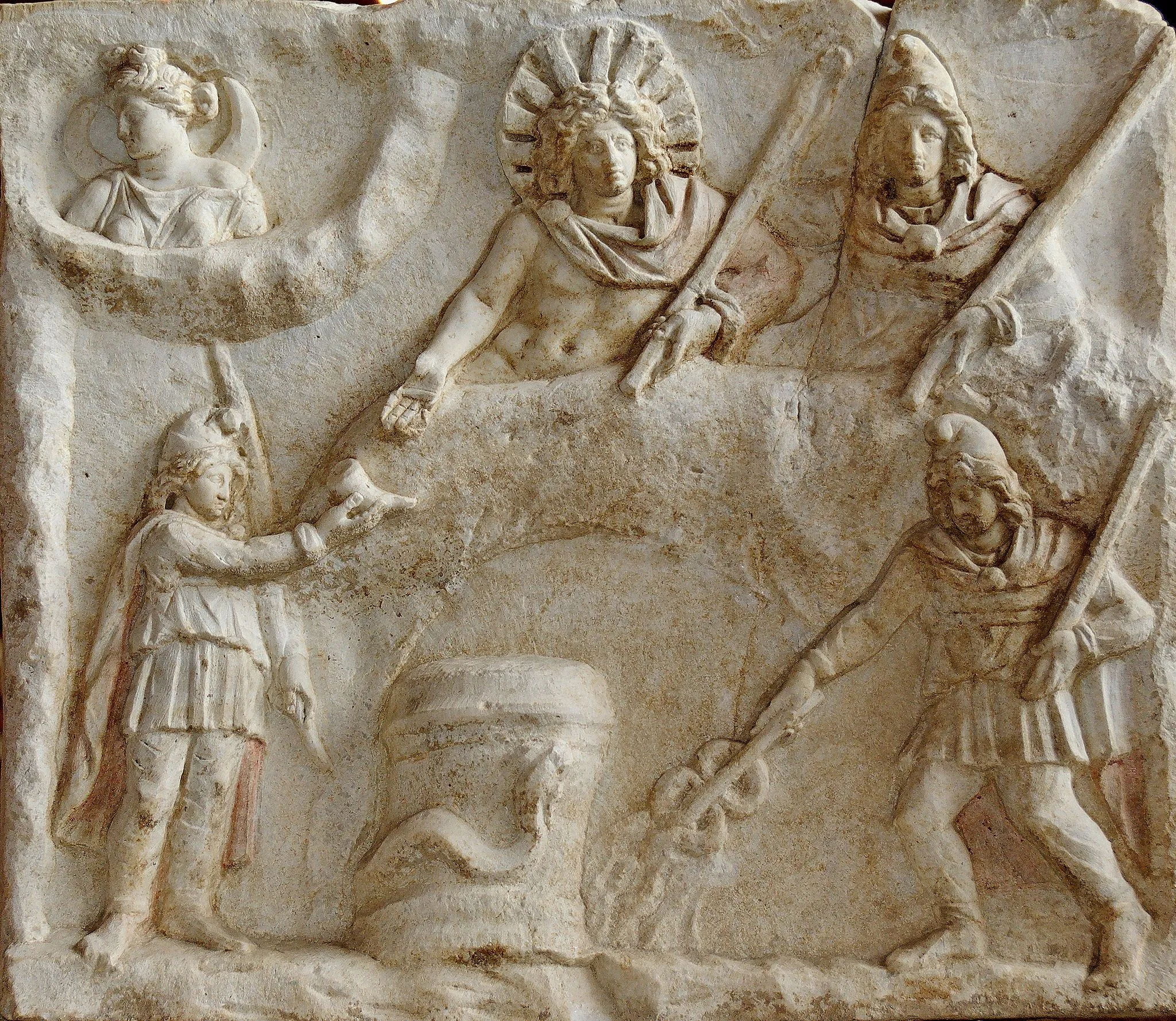
Our imaginary little boy is now in Tehran, at a home of Tehrani people on the last night of autumn, which would be the 21 of December in the Georgian calendar. He is anxiously waiting for an opportunity to ask questions, to know why they celebrate this night.
He is answered with smiles and happy faces, as Iranians love to share their culture and history, and also because Yalda is first and foremost a night of celebration. The ancient Iranians were followers of Zoroastrianism. In Zoroastrian beliefs, darkness is associated with evil. The night of the last day of autumn is considered to be the longest night of the year, even if in just a minute. To prevent evil to overcome, ancient Iranians would gather together in groups of friends and family to spend this longest night of the year together. They would stay awake till dawn and have fun. When the sun of the first day of winter rose, they would achieve the ultimate purpose of this festival: they celebrated the birth of the sun, the light, and warmth. And this is where the name Yalda meaning birth gives meaning to itself.
However, the celebration of the Yalda night or Shabe Chelleh was never forgotten, even when Iranians were no longer Zoroastrians. In Iranian culture and tradition, life is precious. So Iranian people celebrate life in every chance they are given. In Iranian culture, darkness still connotes evil and loneliness, as it may connote in other cultures as well. On the other hand, the sun and light represent life and joy. This is why Iranians celebrate the victory of light on darkness.
What do Iranian people do on Yalda night?
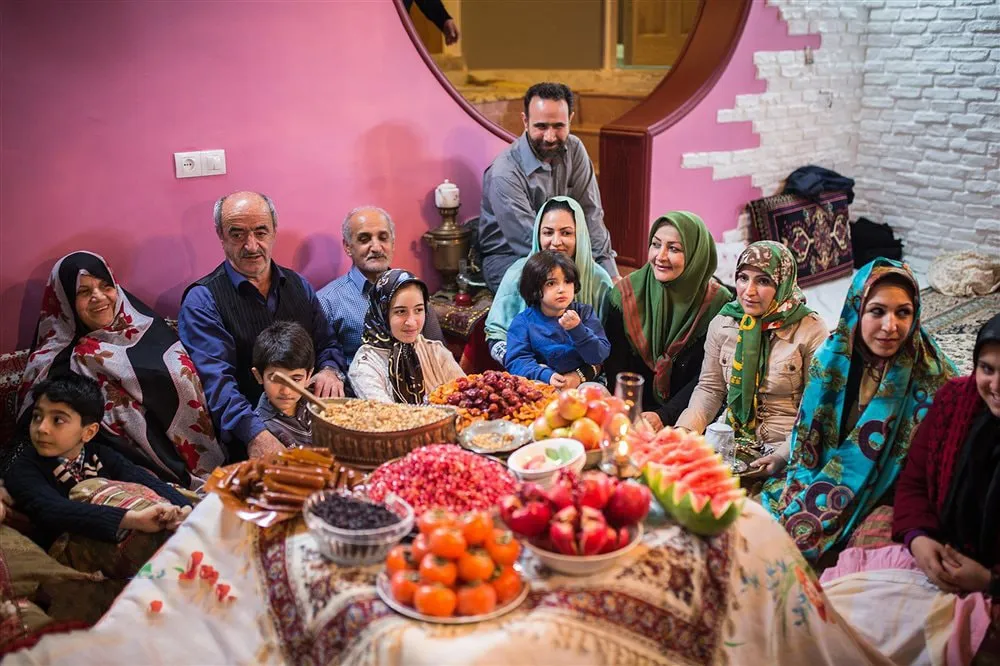
At the house in Tehran, the doorbell does not stop ringing, and all the family members seem to be coming to the home of the elder of the family. It is explained to our boy that this is a custom. The family members and friends gather at the house of their elder and celebrate Yalda. Special arrangements are being held at home as well, a kind of heater is placed on the ground, there is a big table with short legs placed above it, and a vast red blanket covers the whole setting. The boy is told that it is called a Korsi. Korsi means a chair, but a massive chair! In the past, in the absence of modern day equipment, Korsi was the solution for cold winter nights. Not all the houses have Korsi nowadays, but it is still a tradition to set up one in Yalda night to gather around and enjoy the warmth.
On top of the Korsi, the hosts are placing different dishes of fruits and nuts. It is one of the customs of this night, and the boy is told to eat fruits such as watermelon and pomegranate, and also sweet nuts. If one goes out in the days near Shabe Chelleh, he would see streets and bazaars set up with these fruits and nuts, selling and offering them to people who pass by.
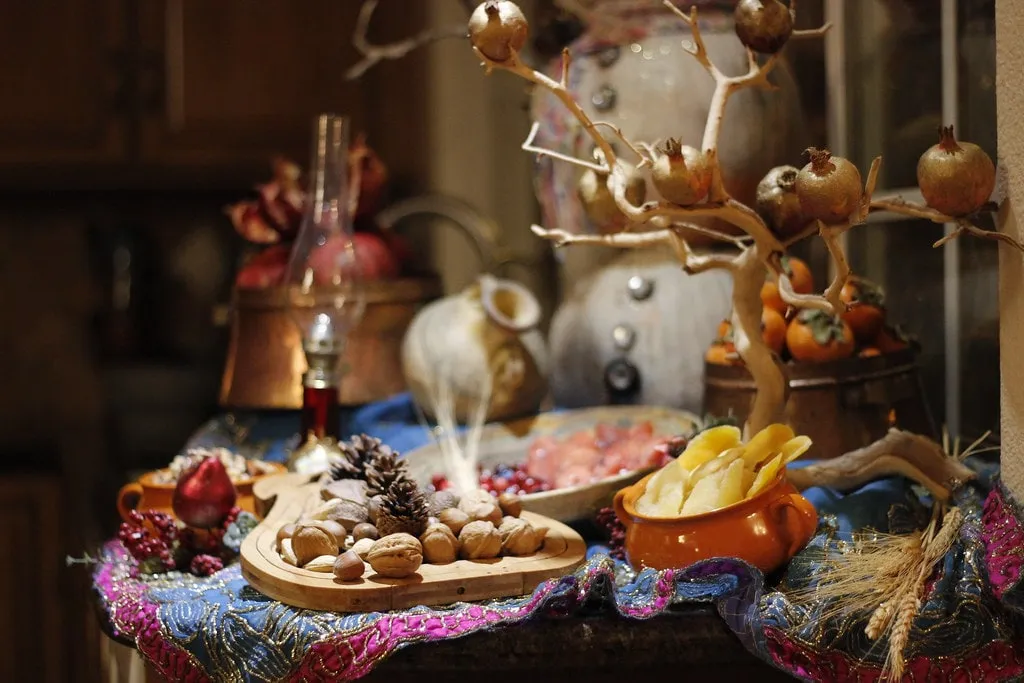
As the night deepens, the doorbell finally stops ringing; all the guests have arrived. They are sitting around the Korsi and eating watermelon or pomegranates. Some eat nuts. This is a night of chatter and laughter till dawn; they recall joyful memories and celebrate the chance of being together under one roof once again, enjoying each others’ company.
Their conversation moves toward dinner. The boy is wondering if there is any particular food to be eaten on this night. He is told, as Iran is a big country, every city has something unique of its own to add to the ancient celebration of Yalda night, and of course, food is one of them. Mostly, Khoreshe Fesenjoon is served which is an Iranian chicken stew with walnuts and pomegranates. In the north of Iran, in the district of Gilan, Sabzi Polo Maahi is the dish of Yalda night, which is a dish of rice and chopped herbs, along with whitefish or smoked fish. In Shiraz the special dish of this night is Havij Polo, carrot rice mostly served with chicken and Persian roasted saffron, or Kalam Polo, which is a very famous Shirazi dish made with rice and cabbage. Each city in Iran celebrates this night eating the typical food in their town; however, what is interesting is that in most of the cities the main ingredients for Shabe Chelleh food are pomegranates or wallnuts. Like in Qazvin in which they eat Anar Polo (pomegranate rice) or Nardoon (pomegranates) Stew in Mazandaran.
The Special Appearance of Yalda Night Celebration: Red
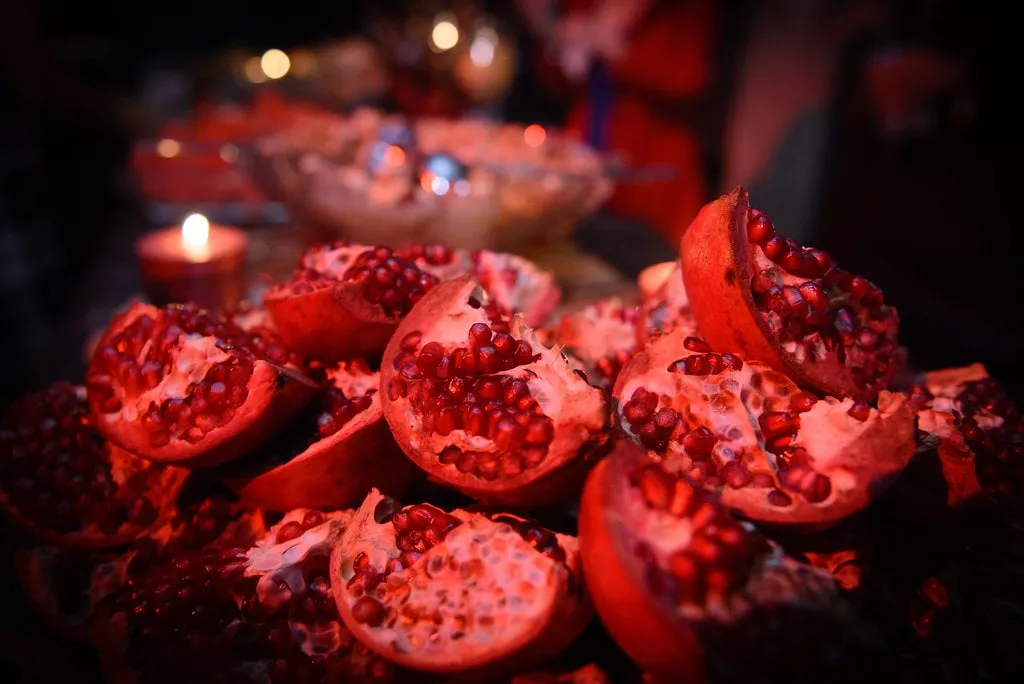
The dominant color of the night is red. As our boy looks around, it is not only the pomegranates or the watermelon, which are red; most of the guests are also wearing the color. Red is considered to be the color of the crimson hues of dawn and glow of life. And the celebration of Shabe Chelleh is the celebration of the victory of light over darkness. To magnify the importance of light, usually lots of candles and light decorations are used in houses and gardens on this night. In some places, the festival is held with fireworks.
Hafez Khaani in Yalda
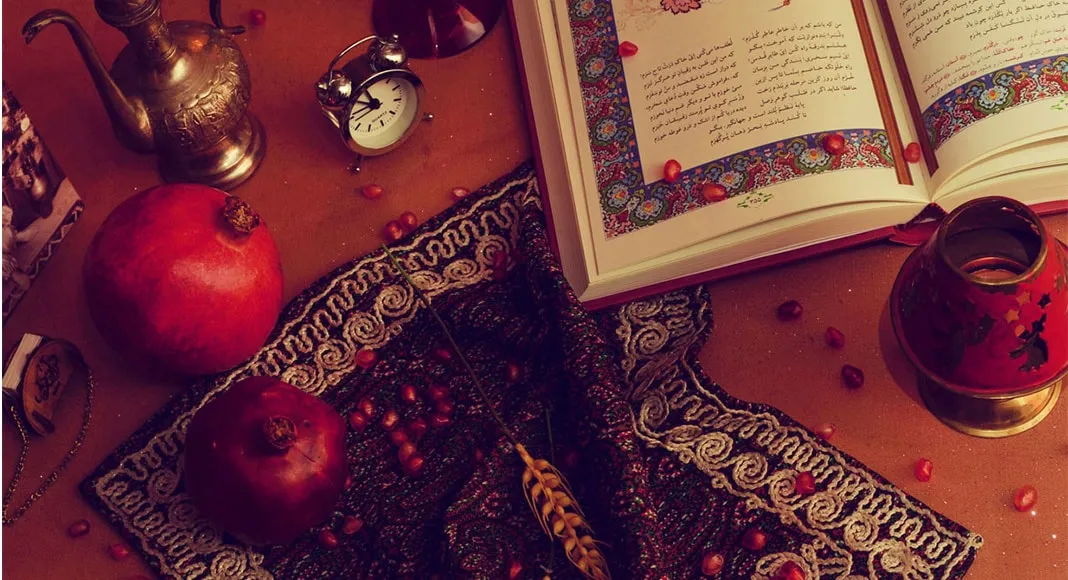
Shams Al-din Mohammad Hafez Shirazi is one of the most famous Iranian poets of the fourteenth century. He is highly valued and much loved by Iranians. Almost all Iranians keep a copy of Hafez’s book of poems called Divan at their homes.
You may be wondering, like our boy, why Hafez is so much loved and what does he do with the celebration of Shabe Chelleh? Well, the answer is quite easy. Most of the Iranians believe that Hafiz answers back if you ask him a question from the bottom of your heart, or wish something. During Shabeh Chelleh, when everyone has eaten their food they would go one by one to the elder of the family, and he or she would do a Hafez Khaani for them. They would make a wish or ask a question and open the Divan, and the elder of the family would read Hafez’s answer and interpret it for them.
The Beauty of Life: Yalda Night
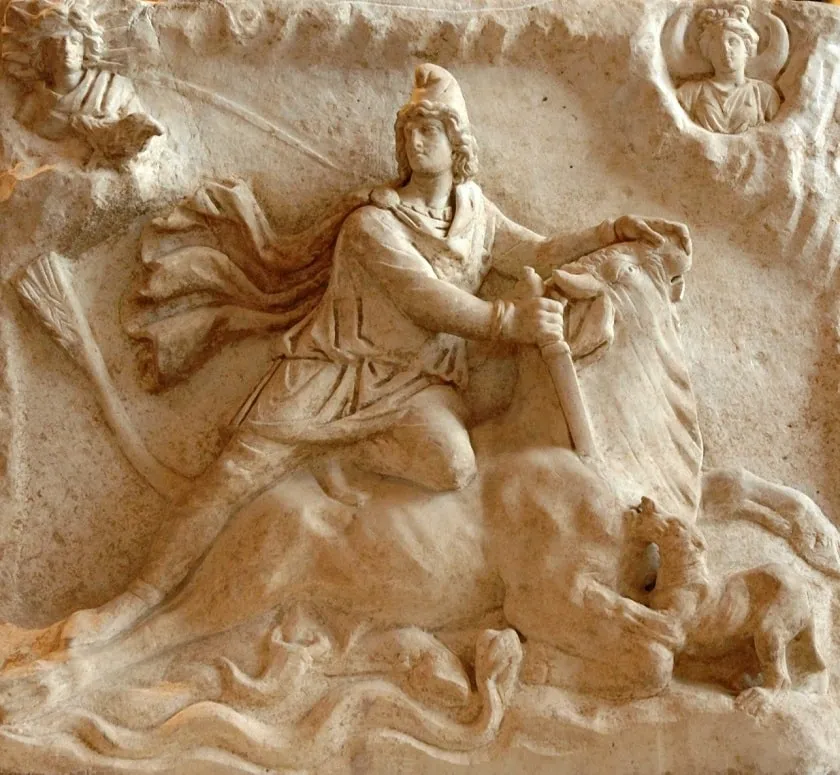
In ancient Iran, once lived a goddess named Mithra. She was the goddess of light and brought warmth to lives. Yalda night celebration is believed to be a dedication to her, who brings light back into the people’s lives. To live a minute of brightness more each day is a privilege ancient Iranians valued and is celebrated through centuries.
Experiencing an old nation’s traditions in valuing life, togetherness, light, warmth, respect, and happiness is a joyful voyage not only for a little boy drowned in exotic experiences but also to us adults, immersed in everyday routines.
